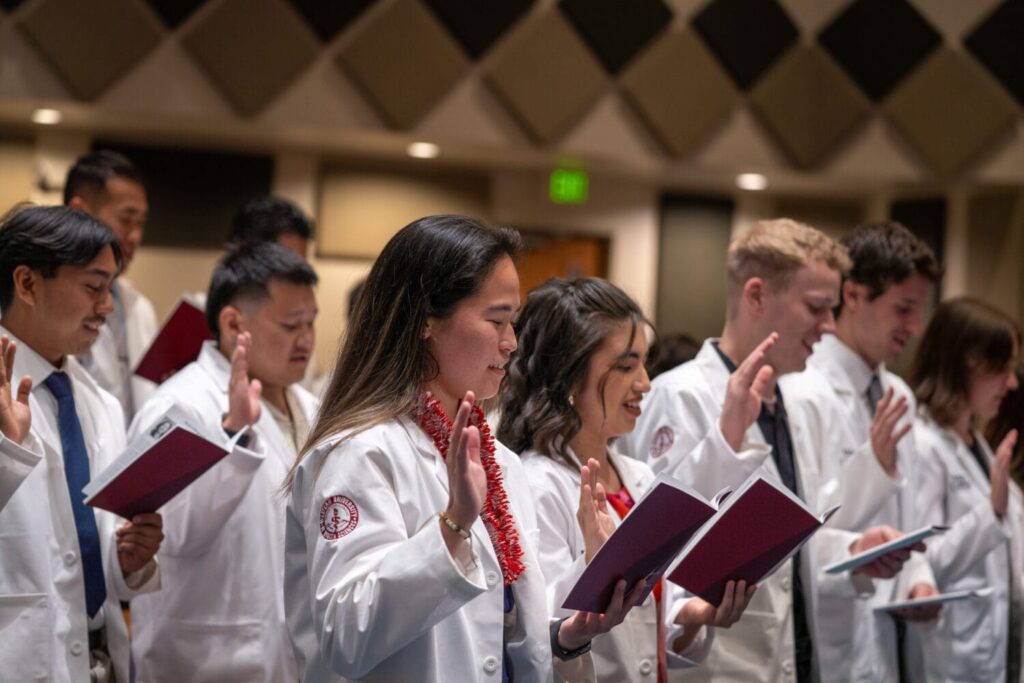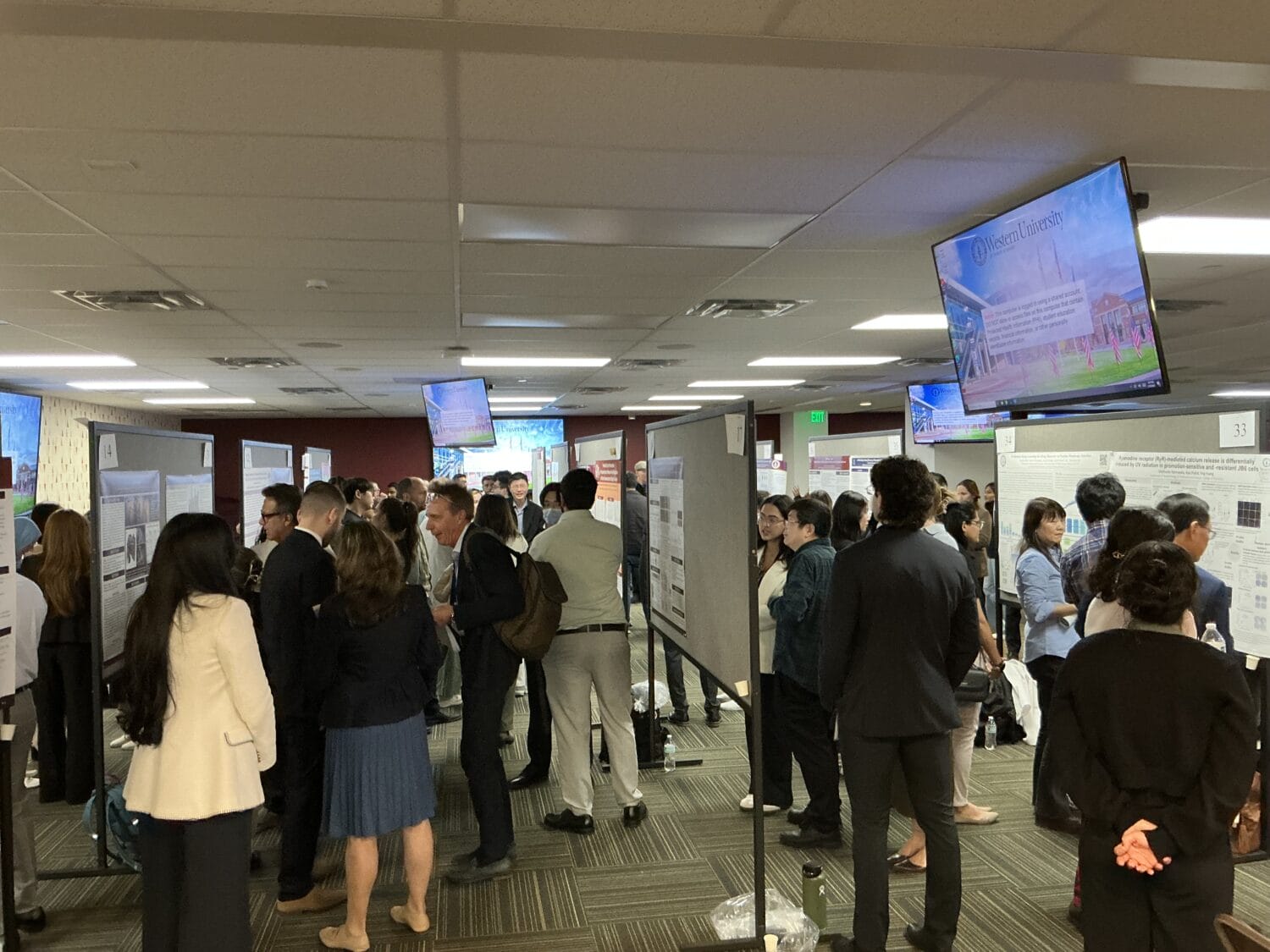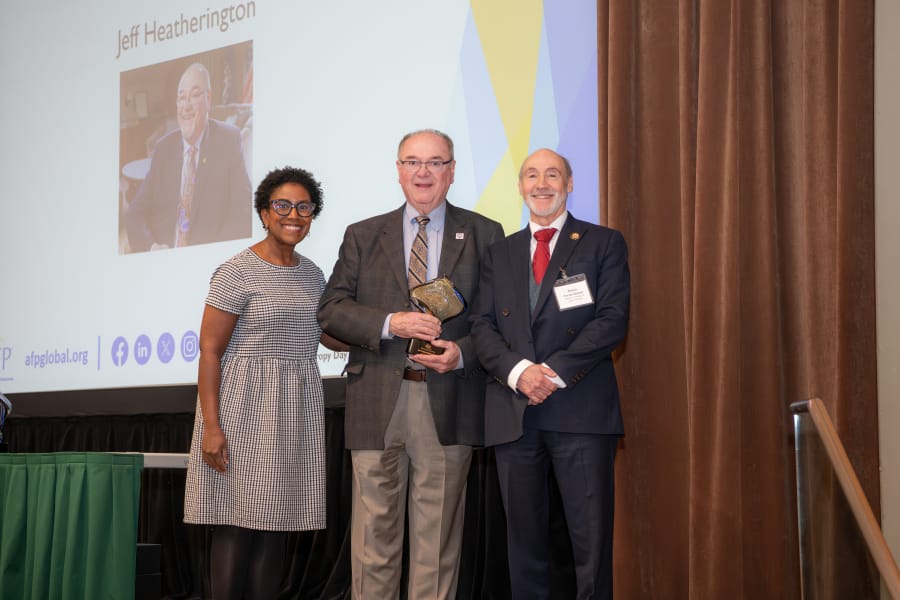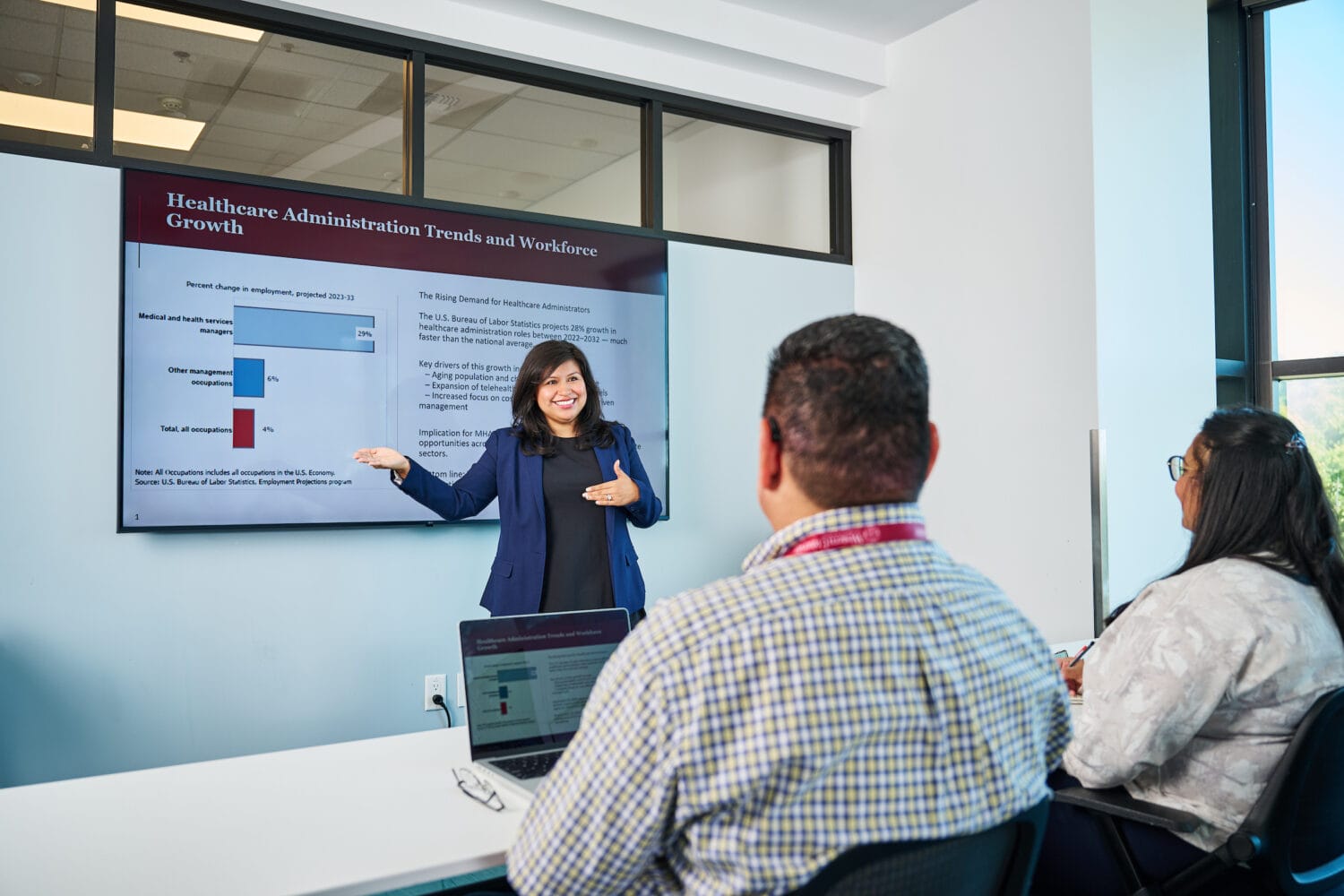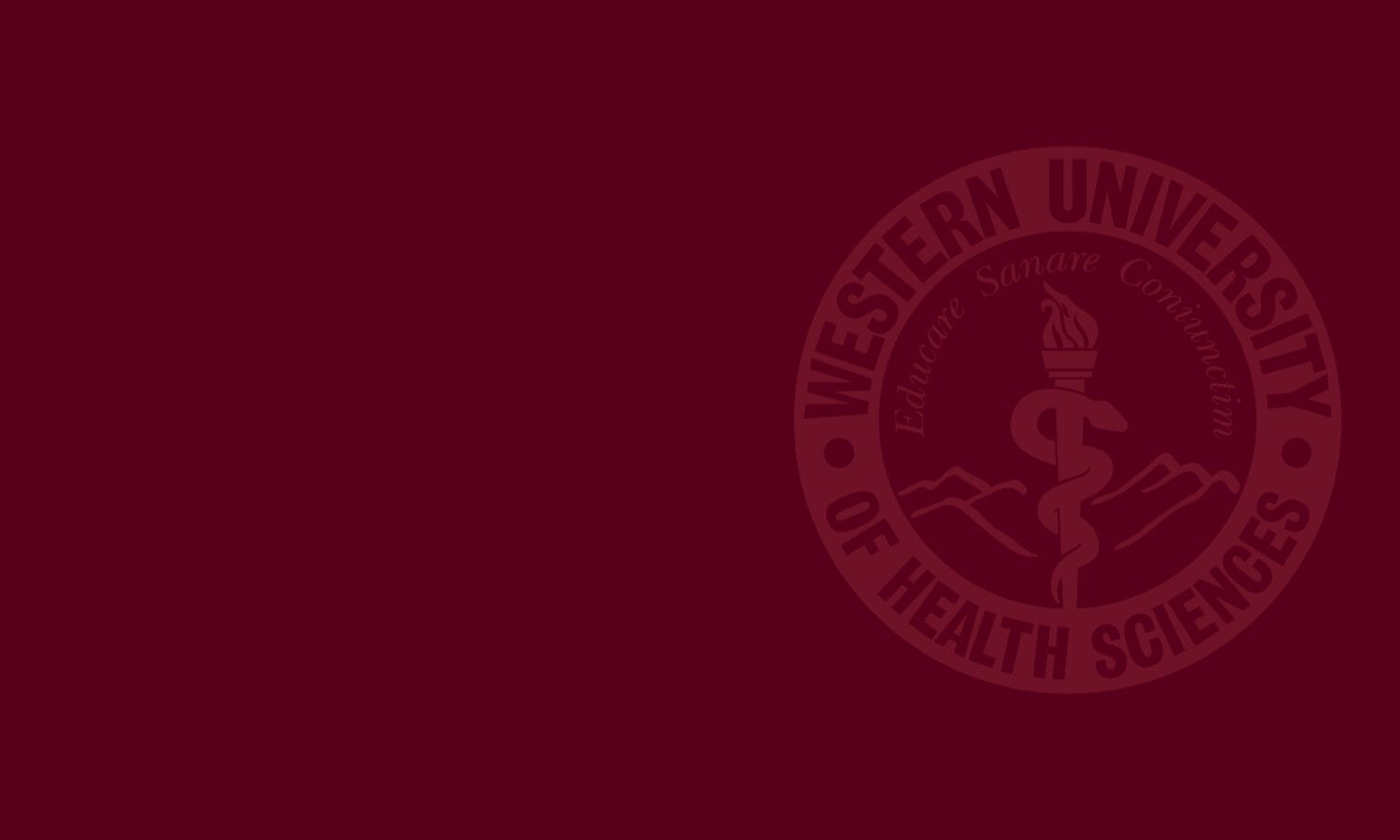WesternU CHS-Northwest welcomes Doctor of Physical Therapy students
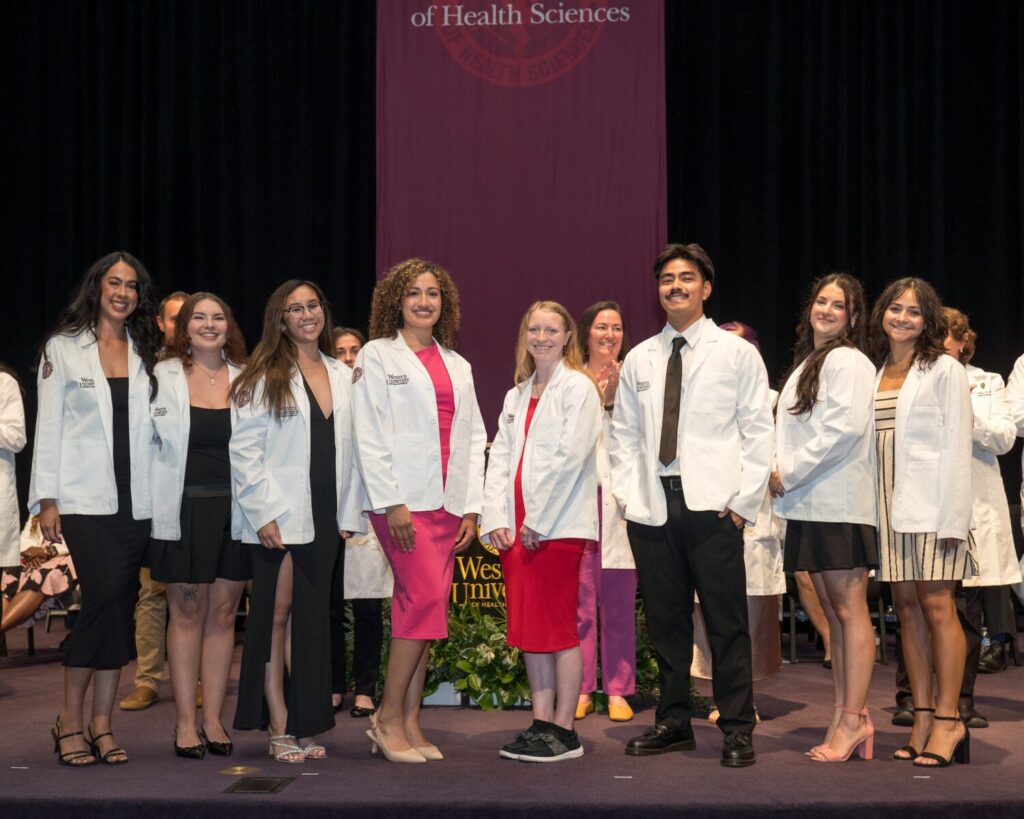
Doctor of Physical Therapy Class of 2028 students in Western University of Health Sciences’ College of Health Sciences-Northwest are training to be health care partners with their patients, working together to maximize movement recovery and problem solve how to help them regain their independence and reduce their pain through healing and movement.
CHS-Northwest held a white coat ceremony for 34 Doctor of Physical Therapy (DPT) students on Aug. 1, 2025, in Lebanon, Oregon. The students began their three-year program in early July, so this ceremony provided an opportunity to pause and reflect on their journey to date.
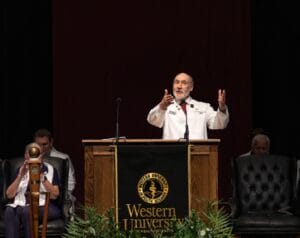
The white coat symbolizes the beginning of a coveted, special educational journey in which academic excellence and humanism, professionalism, caring and trust are the focus, said WesternU President Robin Farias-Eisner, MD, PhD, MBA.
“The very fabric of the white represents the deep fabric of your craft, the relationship between yourselves and your future patients,” Farias-Eisner said. “We believe that the learning of the art of communication and humanism, and the art of healing and compassion is just as important as learning the scientific language of the craft.”
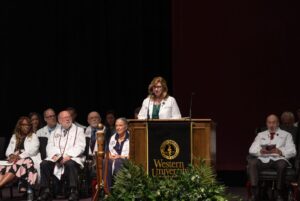
“Students, you are entering the field of physical therapy at a time when your role has never been needed more or will be more impactful,” said WesternU Provost and Chief Academic Officer Paula M. Crone, DO ’92. “As our population continues to age, as communities recover from injury, illness and trauma, your hands, your knowledge, and your presence will help people heal, move and live more fully.”
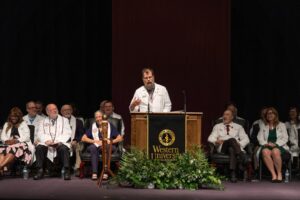
CHS-Northwest Site Dean Jonathan Perry, MSc, PhD, told students this ceremony marks their change from a borrower of other people’s knowledge, ideas and practices to an owner and creator of those things.
“Our world needs you more than ever. Our country and the state of Oregon are experiencing a shortage in health care practitioners that will only get worse. I commend you for the choice you have made to stand up and be counted as a solution to this problem. We will do our best to give you the tools that you need,” Perry said. “When you look down at the white coat you are wearing, remember your responsibility as a leader in your community to those who will trust you and your knowledge. Also remember that it symbolizes your membership in a vast network of practitioners across the world and across our history. Wear the white coat with pride as you step into your new role.”
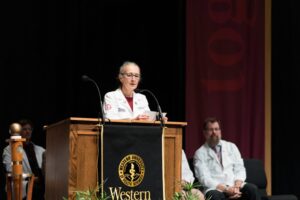
Department of Physical Therapy Education-Oregon Chair Sandra Saavedra, PhD, PT, said CHS-Northwest students will be trained specifically in the challenges of rural health care. They walk through the door knowing how to study, memorize, and discuss concepts.
They will walk out the door seeing every person they encounter through a three-dimensional visualization of their underlying movement system. They will watch someone walk and immediately begin processing whether their limp is related to restricted joint movement, a sensory response such as pain, a muscle weakness or imbalance, or an underlying neurologic event that is altering their muscle coordination. They will be seeing through new eyes.
“They will understand an embrace how important it is to see every patient as a unique individual with unique goals, challenges and living situations. Unlike other medical providers, who may see patients only briefly to diagnose, prescribe, or perform a procedure, physical therapists roll up their sleeves and work side by side closely with patients and their families over weeks or months to maximize movement recovery and problem solve how to help them regain their independence and reduce their pain through healing and movement,” Saavedra said. “Physical therapists are best described as health care partners rather than health care providers. We work with you to help your body heal itself. As faculty we cannot teach these skills in isolation. The community of Lebanon, unlike any community I have ever seen, has embraced our students, and assisted the faculty to provide them with a plethora of learning opportunities through volunteering in our patient application skills lab, working side by side with students during their community service activities, and providing them with welcome gifts as each new cohort arrives and help them day to day to understand what life in a rural community really feels like.”
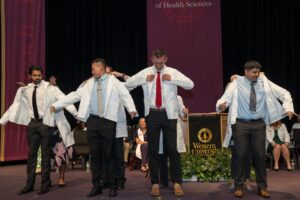
First-year DPT student Steven Rodriguez said he feels the strong sense of community in Lebanon.
“Our group is pretty lively. There’s good energy all around. Everyone is supportive of each other even though we come from different backgrounds,” Rodriguez said. “The faculty has been very good to us. I feel really supported here. The community is very supportive of school and the students.”
Rodriguez said he was drawn to physical therapy because of the strong bonds that form.
“I do enjoy communicating with patients one on one, not only to help them feel better, but to move better. Building that connection to where it’s not only PT to patient, it’s person to person,” Rodriguez said. “It’s very important for a physical therapist to ask how their weekend was, how’s their family. You pass through that clinician-patient barrier to more friends and associates, which I really enjoy.”
